Corning? Never heard of it…
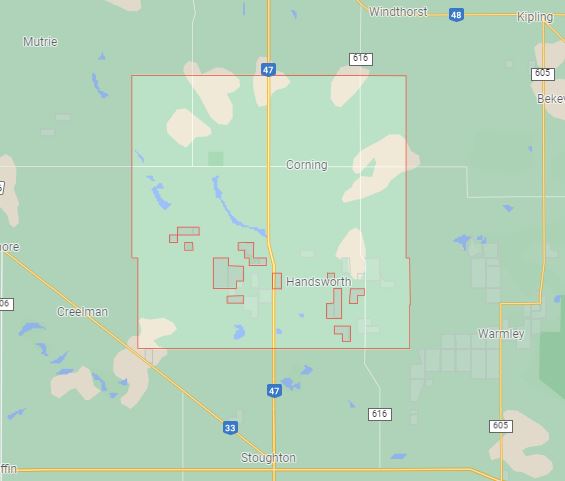
For my linguistic landscape assignment, I chose to do my hometown named Corning. I chose Corning because it is where my family all grew up and still live to this day. My great-grandparents were one of the first people to settle in Corning, so I got most of my research information from them and my grandparents which is another reason I chose to do Corning. Corning is referred to as a hamlet and not a town, city, etc., as there are less than 100 people you live right in town. There are 25 who live right in town but more than triple that amount live in surrounding areas on farms. Corning is located in the southeast corner of Saskatchewan and is 36 kilometers north of Stoughton and 150 kilometers southeast of Regina. It is home to and apart of the RM of Golden West No.95. Within the RM, there is a population of 291 people and includes another small hamlet called Handsworth (RM of Golden West No. 95, 2021). Most of these people refer to Corning as their home in this RM.
Corning was first established in 1905 by European settlers and was mainly used as a source for agriculture. People first settled in Corning for the farming, both cattle and grain. Before, there was more pastureland in the area whereas now a days, you see more broken dirt and land being used for seed. Looking at the actual town itself, for being a smaller town, it had a variety of businesses in it. The people who did not farm worked amongst the town at the RM office, Co-op, Post Office, SGI or were stay at home wives. All of those buildings are still standing and in business except for the SGI which just closed down a year ago because the guy who ran it retired. Along side these businesses it had an English-speaking school that closed in 1995 as well as a skating rink, park, curling rink, recreation hall, ball diamonds which are all standing and in use. The old school has now been turned into a greenhouse that runs in the spring and summer.

Everyone who currently works at these businesses grew up in Corning and have lived here for majority of their life. A lot of the people who still live here are third generation family members who still live in the same yard as their parents and grandparents which is really neat to see. In Corning everyone tends to know everyone and is always there to lend a helping hand to those in need. We get together and put on some major events in the community which pulls from other communities to raise money for the rink and the hall. The two major events we have are the Corning Dinner Theatres and Corning Ironman. Corning Dinner Theatre is a time where we put on a play and serve people a meal, drinks, and laughter for two weeks in November. Everyone volunteers their time for months in advance to prepare for this event. The second one is Corning Ironman that occurs every February. They get around twelve teams and throw a big recreational tournament. Again, people volunteer their time to work the canteens and take turns reffing. Both of these events make me happy to live in a tight nit community as everyone knows everyone and it is like one big family.
Sight Seeing in Corning
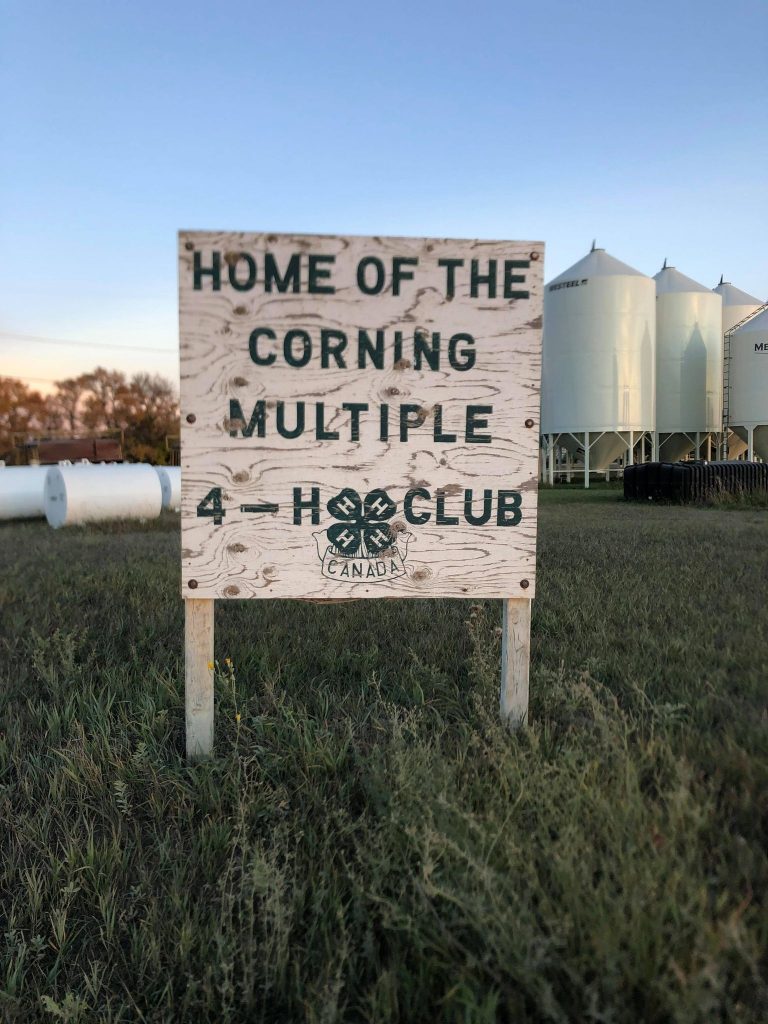
Corning used to have a Beef and Horse 4H Club 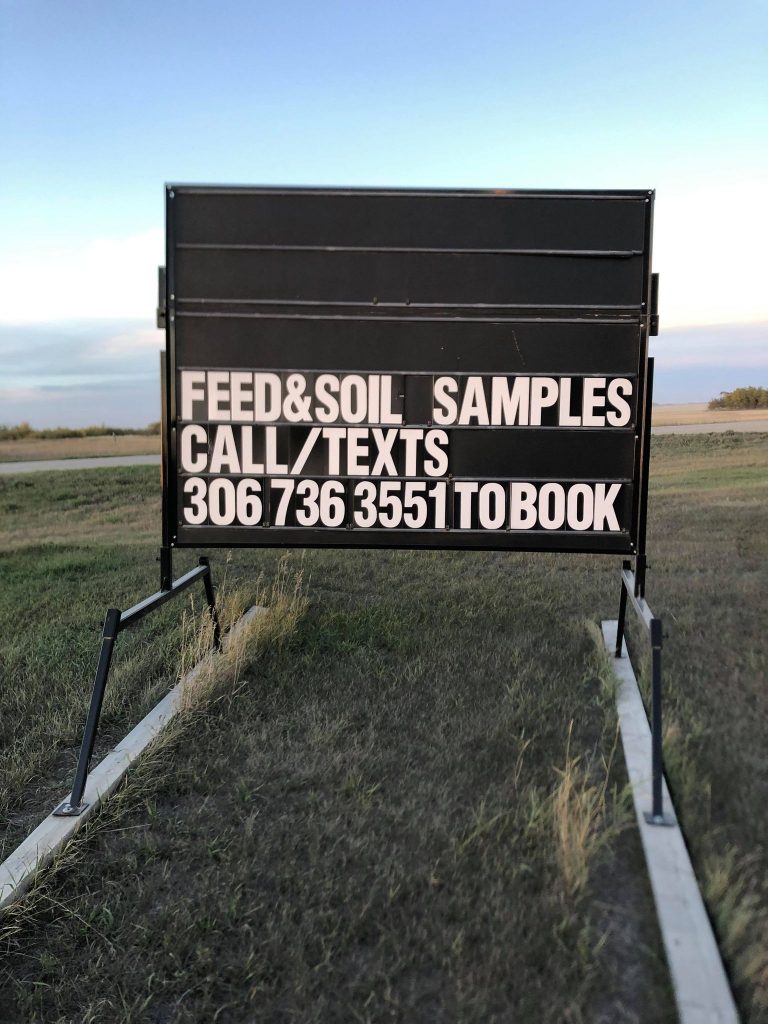
A billboard sign that the Co-op has along the main road 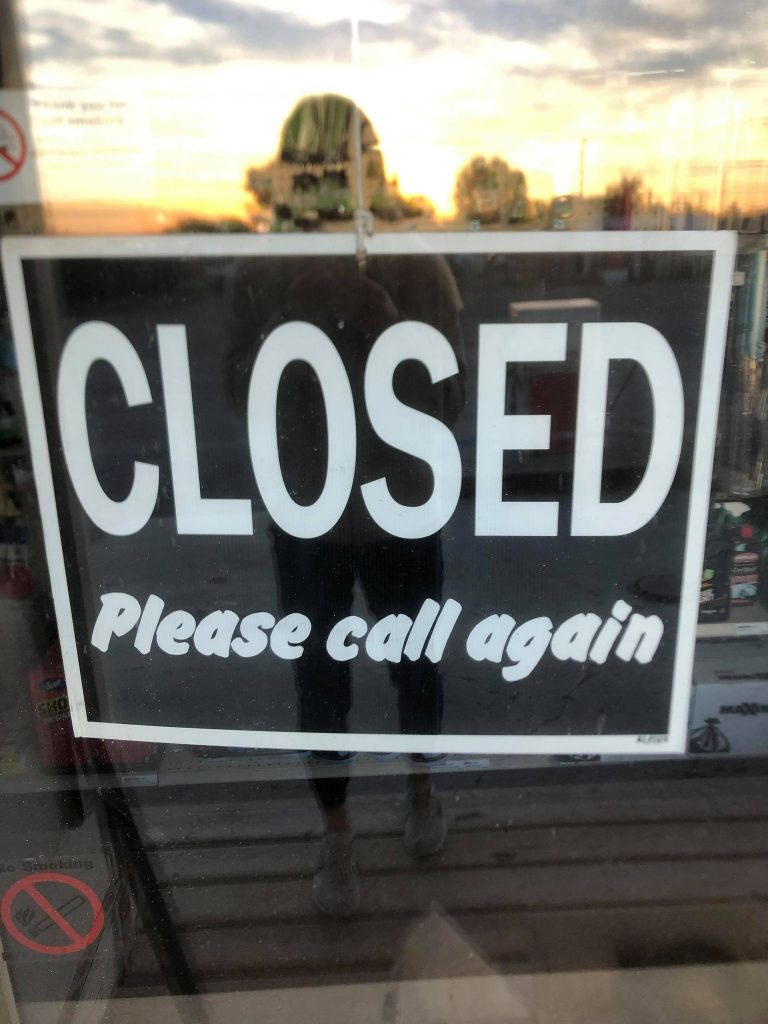
The Open and Closed sign that is in the Co-op window 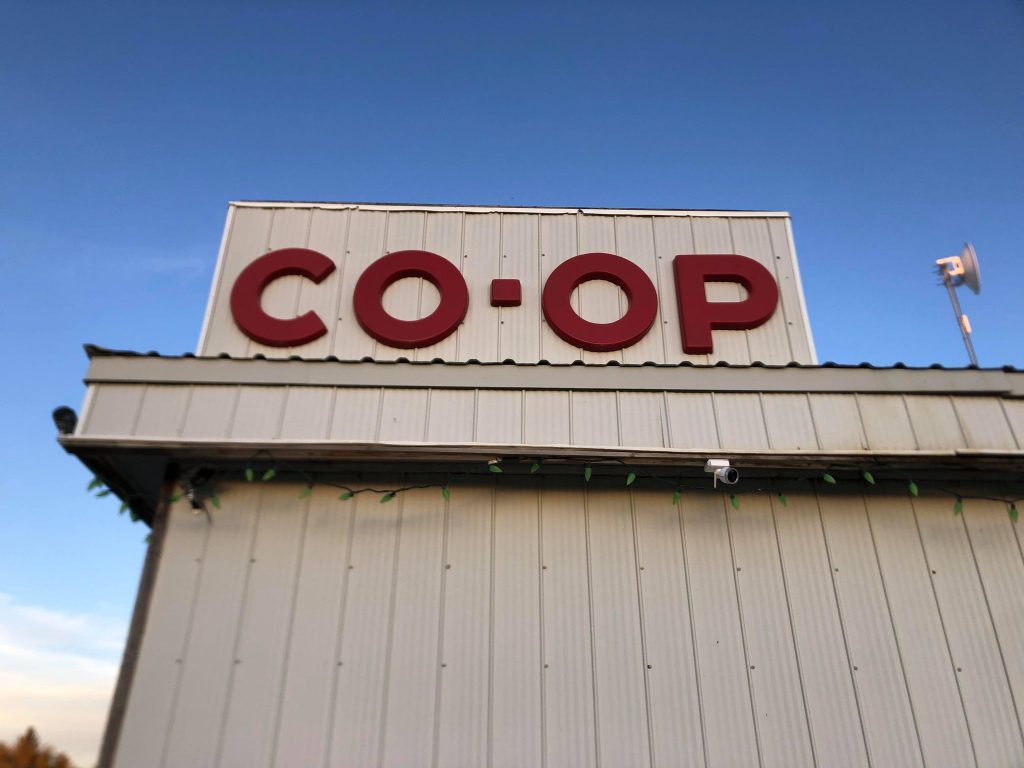
The Corning Co-op Sign 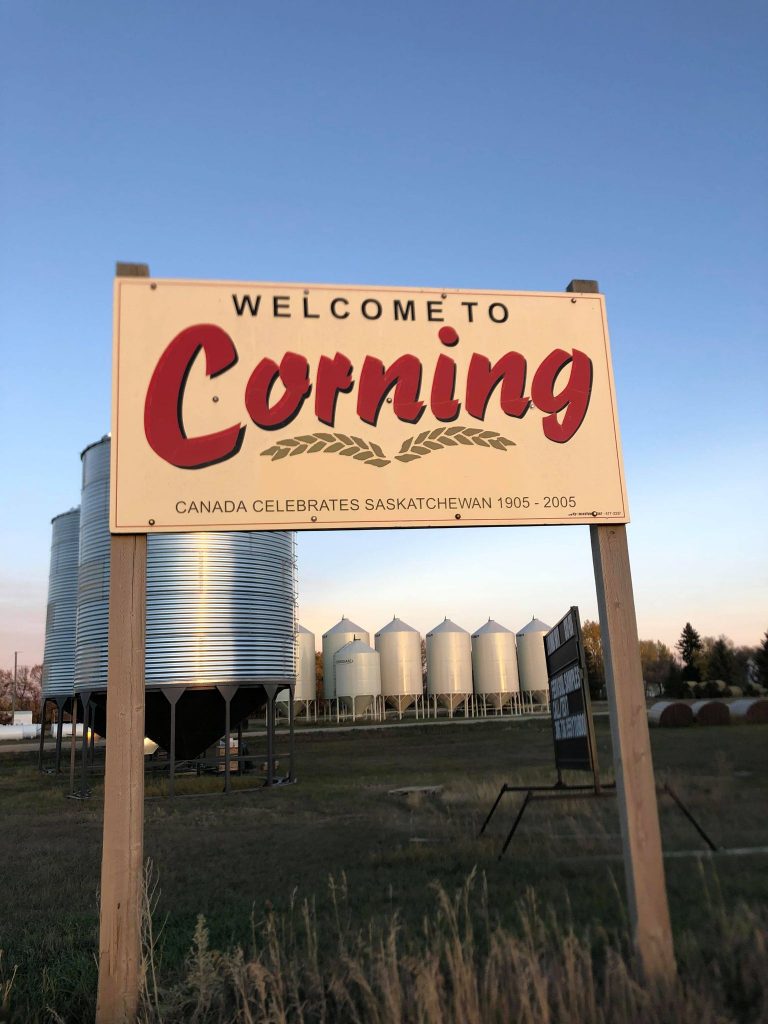
One of two signs coming into Corning from the main road 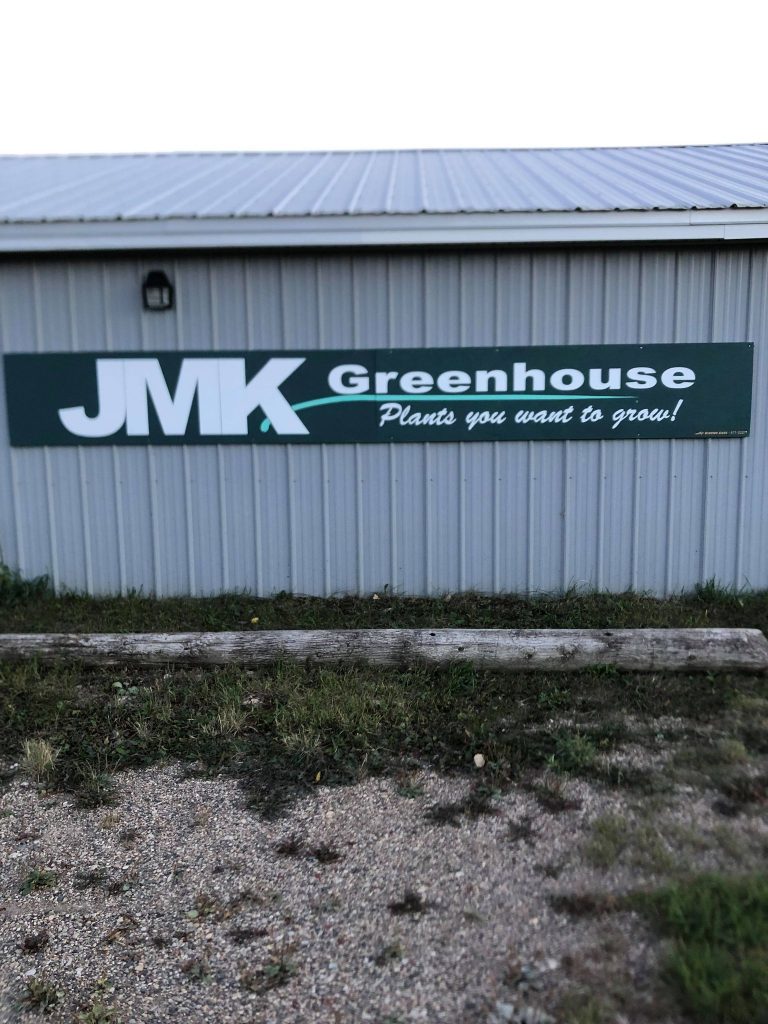
This is the greenhouse sign which is now attached to the old school 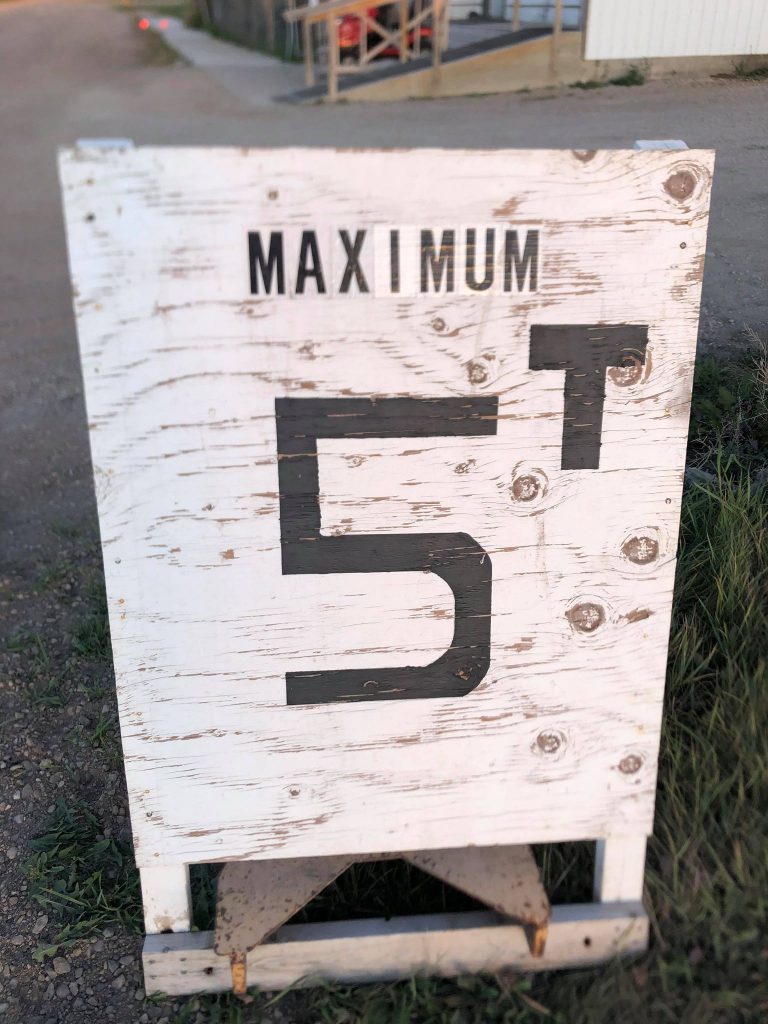
A sign that is put on main street so truckers do not drive on it 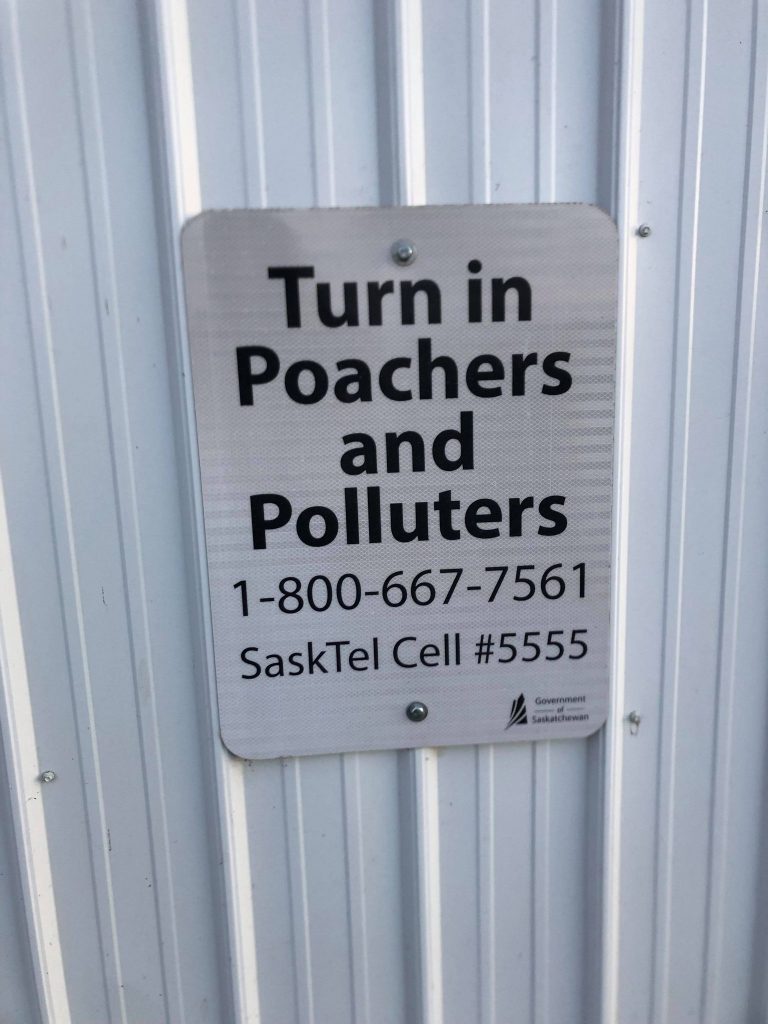
This is also posted along the main road on a shed 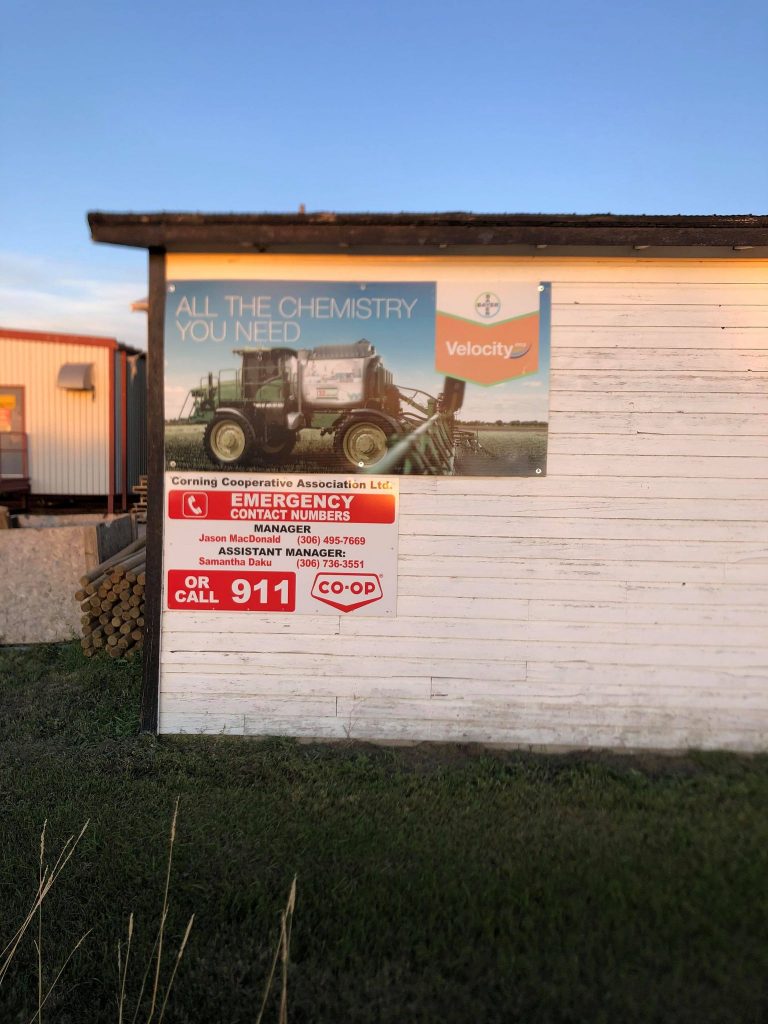
One of the signs about chemical that the Co-op sells 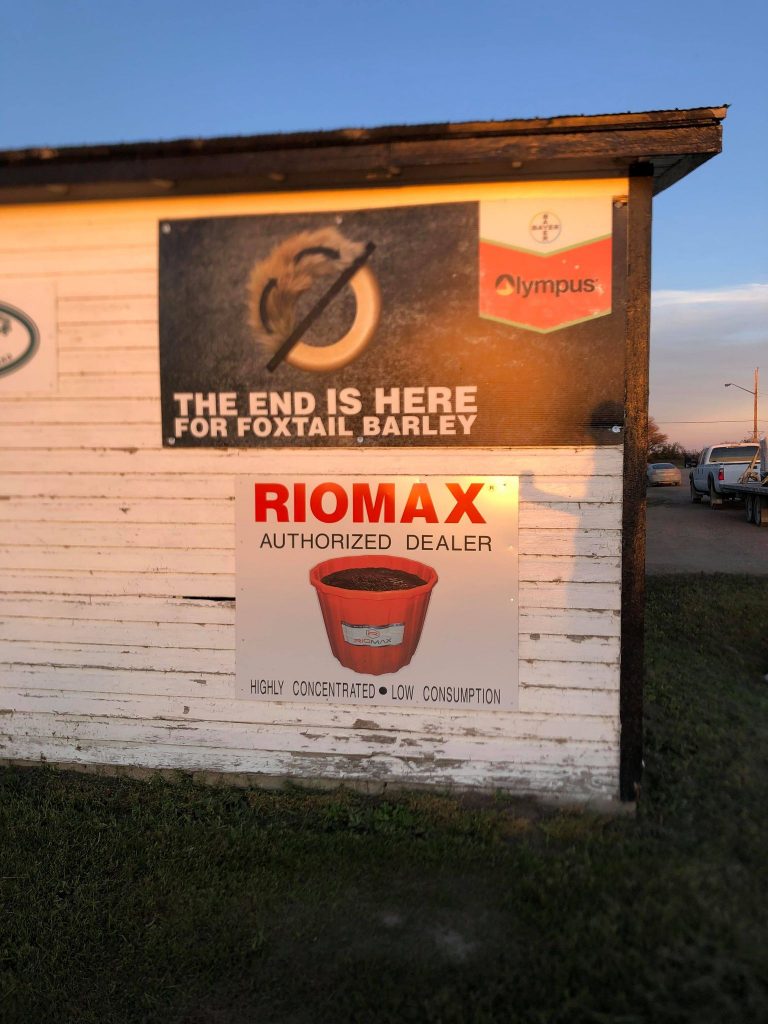
Another chemical sign 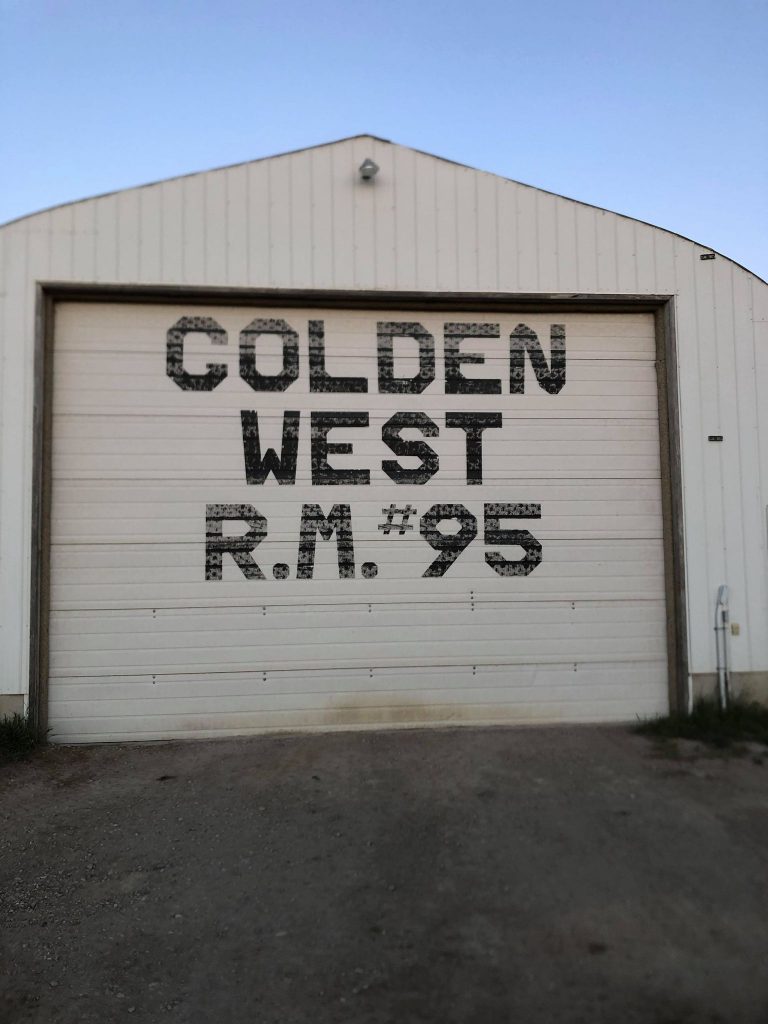
This is painted on one of the RM shop doors 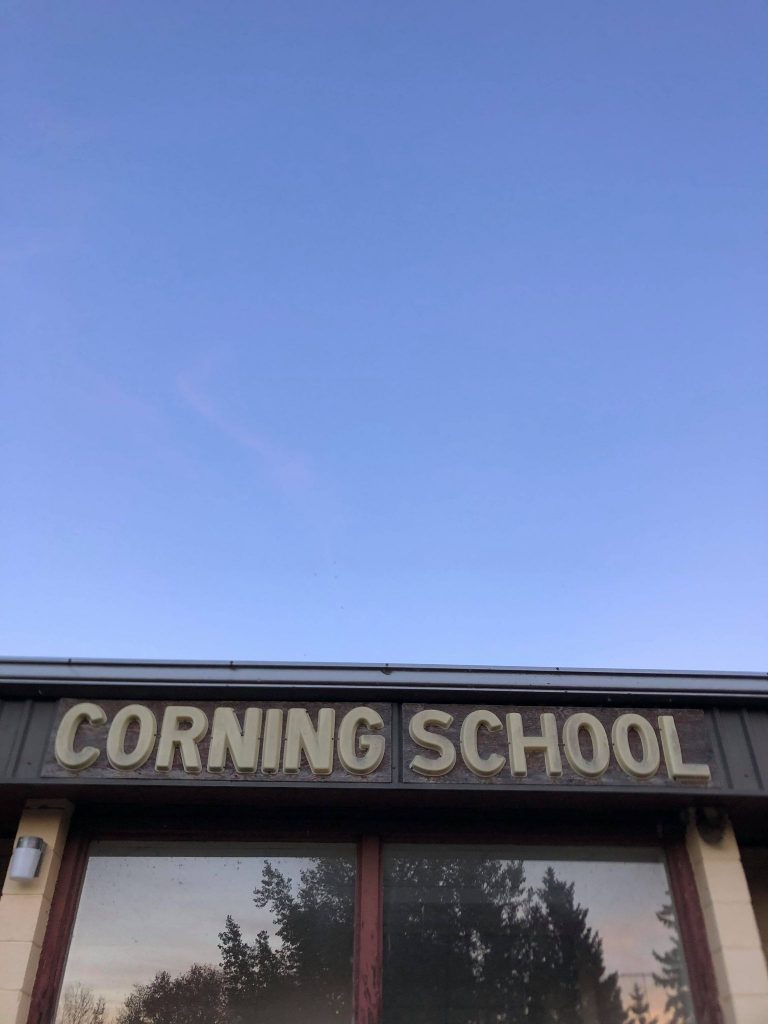
The greenhouse kept the Corning School on it
What languages do farmers speak? Their own?
Languages Found on Signs
| English | Yes, all of them! |
| French | None |
| Other | None |
The Different Kinds of Signs Found
| Billboard Sign | Street Sign | Business Sign | Town Sign | Other Signs |
| 3 | 1 | 4 | 2 | 2 |
Not everyone speaks English?
As you can tell by the title of this section, I have realized how oblivious I was to other languages. I knew that there are other languages that are spoken like French, Cree, etc., but I did not pay attention to how there is no other language spoken around here except English. The images I took around town show that clearly because you only see English on them and nothing else. If I did not live here and came across it, I would have to assume that everyone speaks English as there is no indication of there being another language spoken. With me having lived here for 10 years, I know that everyone in the area speaks English and that is it their mother language, myself included.
Speaking for my own family, some of my grandparents and great grandparents spoke French and Ukrainian but had taken to the English language when they came over. For the families I know from Corning, this is what happened to their families as well. All of us would come into town and read all of the different signs no problem and think nothing of it because this is my linguistic landscape and identity. English is my mother tongue and whenever I come across something that is not in English, I right away look for the English part of it to read instead. I have come across so many sets of instructions that have them in many other languages, but I would not even know what other languages I would see in them besides English and maybe French because I just skip over the rest. The linguistic landscape does not undermine my own identity as everything I found is apart of mine, but it has shaped me to becoming blind to the multilingualism around me.
Down the road from us about 20 kilometres is the First Nations Reserve called Ocean Man on Treaty 4 land. There you will find Assiniboine, Cree, and Saulteaux band. This reserve is also known for having an agricultural background and owned most of the land around Corning says my grandfather. It was these First Nations who were displaced from this zone and moved farther south in the RM. Many of the band members support Corning by getting their gas and groceries from there as well as rent out some of their land to the local farmers. From my personal experiences and interactions with them. Most of them speak the English language, leaving very few of them speaking their Native tongue. With all of this being said and recent discovery of myself lacking knowledge on multilingualism and linguistic landscape, I am not sure if I would have even noticed them speaking their native tongue or really thought about it.
After reaching my conclusion, I am astonished with how isolated the town of Corning. I want to know who makes the signs around town and how they get to decide that they only get to be in English? If there was another family wanting to move that might speak a different language, they most likely would not choose to move to Corning because they would already feel isolated. Given what I know now, there are a couple of things I would like to do that could attribute to the linguistic landscape to help people who were like me to get a better understanding. With being in a tightknit community, the one thing that I would start with is just educating my community on the importance of linguistic landscapes. I could go and physically talk to them, hang up my own posters, share informational things on my social media among many other things. I believe that educating people on the topic is the first step and the most importance as they will try more to change when they know why they should change. I know for many people this might not work, but if I were to go up to them and point out how everything is only in English and ask if they have any other languages that they use, that might be what they need to hear to start being more aware of it.
Enjoy world class nuru massage in bangalore offered by izspa
happy ending massage in bangalore at cheap and best prices offered by ishaspa so book now